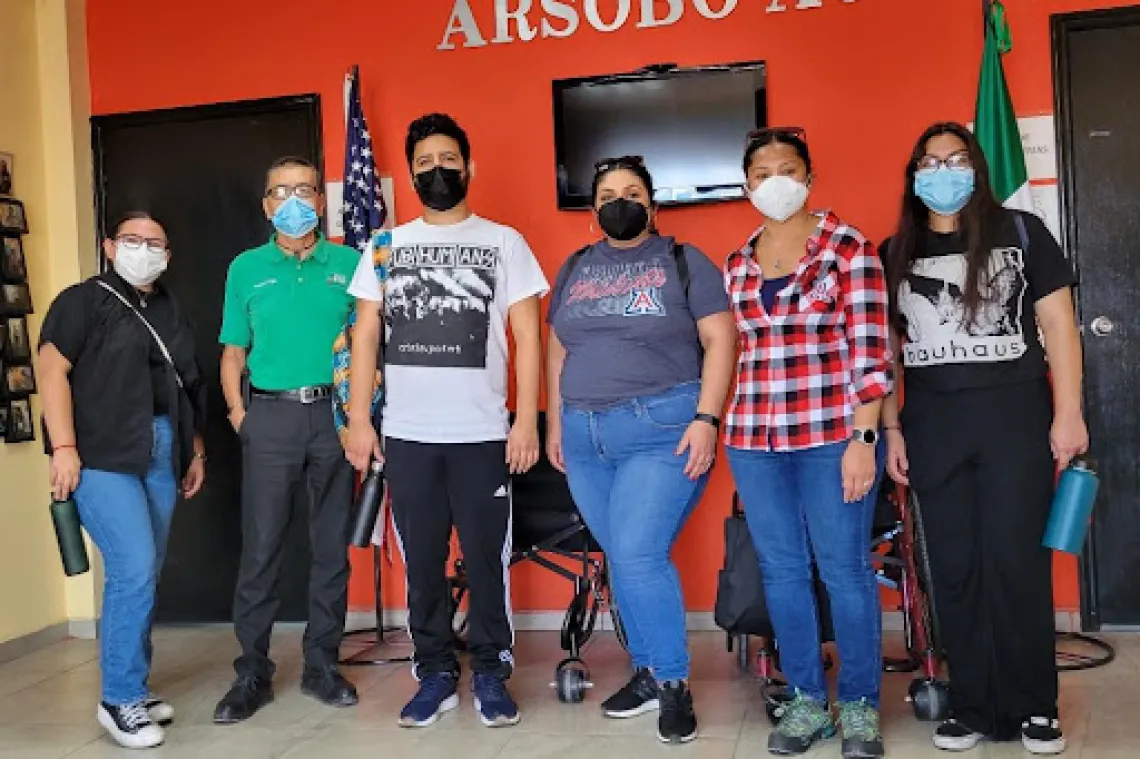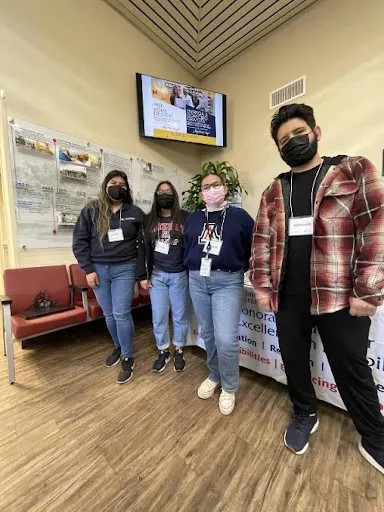The CACTI Blog: DISCAPAZ - Experiences in the Borderlands

By Paulette Nevarez & Abraham Venegas, 2022-2024 Diversity Fellows
DISCAPAZ: Disability Experiences in the Borderlands is a research project using artistic and creative expression. As DISCAPAZ fellows, our responsibility was to assist community members in developing digital mixed-media experiences that reflected their experiences as individuals with a disability living on the Arizona-Sonora border. We had the opportunity to meet with people from both areas and got to learn so much about their unique life stories and circumstances.

The DISCAPAZ project began in July 2022 with plans to continue in the foreseeable future. We hosted three workshops with disabled community members across both Nogales, Arizona and Nogales, Mexico. We facilitated discussions on how the participants saw themselves in their communities, and important experiences and relations that formed their identities as people. The workshops helped us build trust with community members at the ARSOBO clinic in Nogales, AZ. These workshops encouraged participants to draw, write and scrapbook using magazines, colors, pictures, and more. They would share photographs, ideas, and guidance on how they wanted their digital stories to best reflect their experiences. Visual presentation is one of the best ways to share the realities of identities, culture, and histories of marginalized communities. Using the artifacts shared we created digital stories that contain music, photographs, and other forms of media.

As fellows, being bilingual in Spanish and culturally sensitive to the realities that disabled borderland communities face in society assisted us in conducting interviews with community members. In these oral interviews, community members gave testimonies of their experiences, thoughts, inspirations, and call for societal changes for the betterment of conditions for disabled communities living on the United States - Mexico border. In discussing with community participants, we learned the importance of documenting marginalized stories. Disabled communities living on the borderlands are neglected in literature, history, and issues on the US/MX border. With the current anti-immigrant climate where migrant communities are being targeted it's important for the testimony on how disabled communities are being impacted on the border. The ways the disabled community support each other at ARSOBO Clinic shows the importance of community in these times.
This project helped us learn more about these unique experiences and the awareness and advocacy that is needed. The individuals we worked with were so inspiring, fun and creative. We are so excited to continue working with them and continue the project! The next step for this project is to hold a screening of the digital stories for participants and partners, and to launch a website for the stories. We hope that the audience will learn the importance of being an advocate.
The CACTI Blog features the voices of our interdisciplinary trainees and Community Advisory Council members as they highlight diverse images of people with disabilities and provide community information and advocacy on disability issues. Check Out The CACTI Blog
